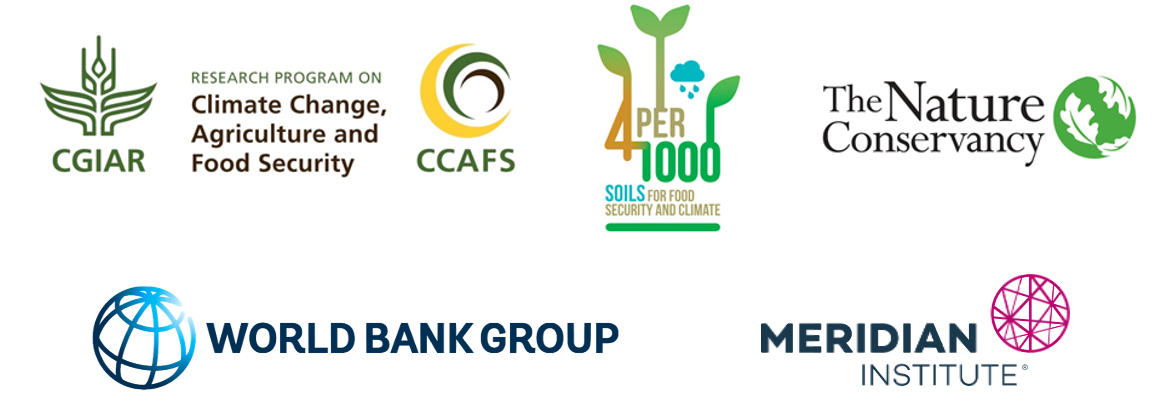Web seminar - 10 September 2020
Enhancing investment in soil health and carbon storage:
Frontiers for linking finance and carbon accounting
View recording of the webinar here: https://soilcarbon.weebly.com/participant-resources.html
Background
Enhancing soil health can contribute to improving agricultural productivity as well as soil organic carbon (SOC) sequestration. UNFCCC’s Koronivia Joint Work on Agriculture, Sustainable Development Goal 15 and the Land Degradation Neutrality framework demonstrate the increasing attention of policy makers to the importance of SOC for land productivity and food security. In addition to that, the 4 per 1000 Initiative has been promoting a global partnership intending to facilitate efforts across multiple stakeholders to promote action at all levels to increase SOC stocks globally.
Despite the broad international attention, a large gap remains between the potential of SOC sequestration and implementation of practices on the ground as well as trade-offs with the emissions of greenhouse gases (GHG). As the investment community seeks to improve its climate impacts, many organizations are now asking how to best support implementation of those practices. Diverse opportunities for public and private finance exist and are emerging. For example, the UNCCD set up the Land Degradation Neutrality (LDN) Fund as an “impact investment fund blending resources from the public, private and philanthropic sectors in support of achieving LDN through sustainable land management and land restoration projects undertaken by the private sector worldwide.”
Major constraints are the need of transparent, accurate, consistent and comparable methods for accounting changes in SOC stocks and net GHG emissions, notably through the use of new technologies, as well as the need to enable standardized protocols at low transaction costs. Promising approaches combine pragmatic and user-friendly tools with site-specific modelling, and make use of geospatial data sources and blockchain technology.
Purpose of the web seminar
The purpose of this web seminar is to support investment-oriented actions promoting soil health and carbon storage by improving the accounting of soil carbon sequestration. We seek to answer the question: How can soil carbon accounting improve to support investment-oriented actions promoting soil health and carbon storage?
To this end, participants will examine opportunities for action using novel methods and frontier technologies that enable linking technical practices with finance and policy for accurate and cost-efficient SOC accounting. The workshop will also examine how improved SOC accounting can support three priority lines for action (Vermeulen, et al. 2019): policy, business development and value for farmers to promote scaling up of investment in soil health and carbon storage.
The key output of the meeting will be a summary of the state of the art of the component methodologies or a combination thereof, and what is needed next to make these most useable for investors to account for SOC sequestration.
The event will bring together multilateral development banks, private banks, and other investors, donors, and implementing organizations with developers/providers of tools and project standards, to share experiences and develop solution pathways for enhanced investment and SOC accounting. The web seminar is open to the public.
Sponsoring organizations
This event is co-organized by CCAFS-CGIAR, The Nature Conservancy, 4 per 1000 Executive Secretariat, World Bank and the Meridian Institute.


1 Comment
Viridiana Alcantara-Shivapatham
To be included in this page:
Costa C Jr., Dittmer K, Shelton S, Bossio D, Zinyengere N, Luu P, Heinz S, Egenolf K, Rowland B, Zuluaga A, Klemme J, Mealey T, Smith M, Wollenberg E. 2020. How soil carbon accounting can improve to support investment-oriented actions promoting soil carbon storage. CCAFS Info Note. Wageningen, The Netherlands: CGIAR Research Program on Climate Change, Agriculture and Food Security (CCAFS). https://hdl.handle.net/10568/110284